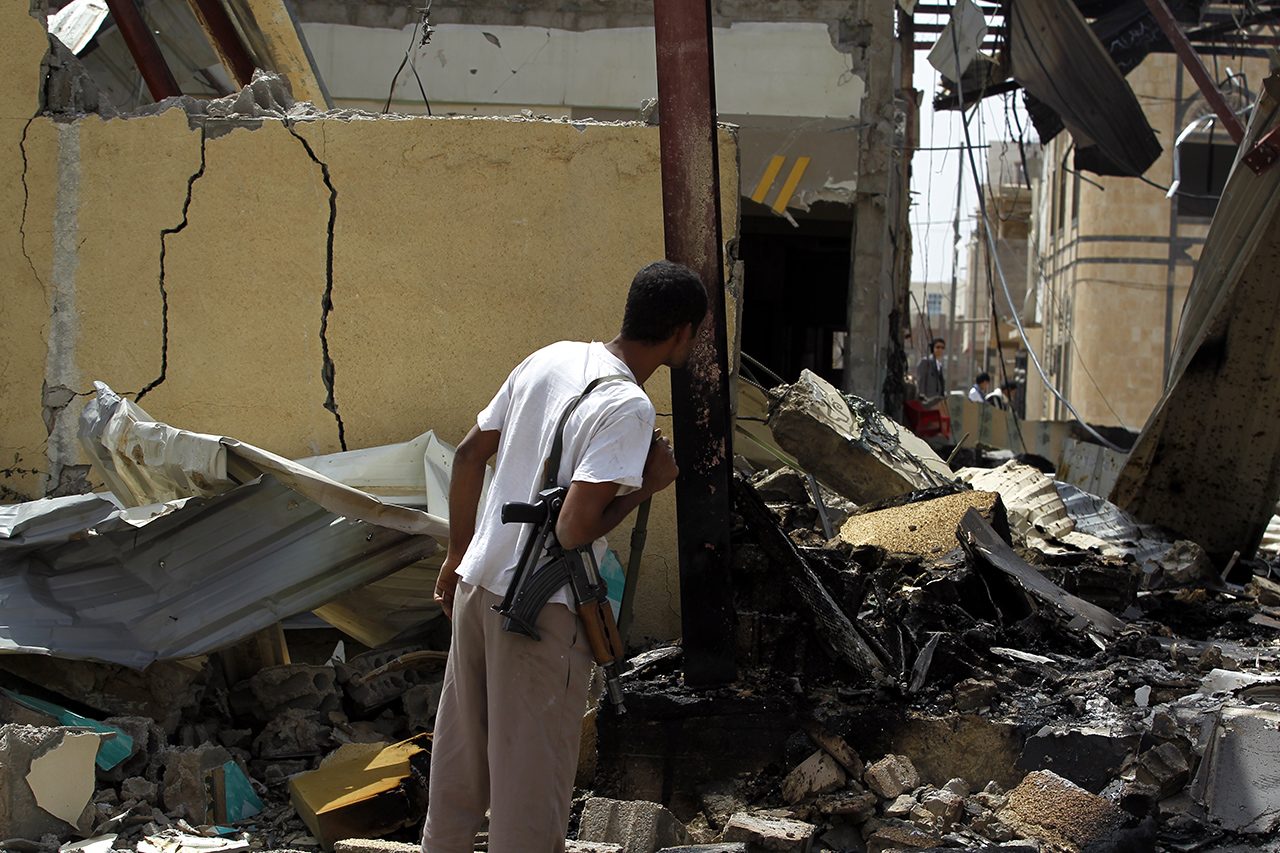SUMMARY
This is AI generated summarization, which may have errors. For context, always refer to the full article.

SANAA, Yemen – A UN-proposed Yemen humanitarian truce came into effect just before midnight Friday, July 10 as relief agencies scrambled to rush desperately needed relief supplies to millions threatened of famine amid doubts over the ceasefire success.
The United Nations on Thursday, July 9 announced a 6-day ceasefire from 11:59 pm (2059 GMT) Friday until the end of the Muslim fasting month of Ramadan on July 17.
But shortly before the deadline, Saudi-led coalition warplanes pounded positions of Iran-backed Shiite rebels, more than 3 months into their campaign backing exiled President Abedrabbo Mansour Hadi.
Though the raids stopped around 30 minutes before the truce came into effect, clashes have continued in the central city of Taez between rebels and fighters loyal to Hadi, witnesses said.
The leader of the rebels Abdulmalik al-Huthi said Friday that he did not expect the truce to hold, demanding an end to the Saudi “aggression”.
“We do not have much hope for the truce to succeed,” said the rebels’ chief in a televised statement aired on the rebel Al-Masirah channel ahead of the truce deadline.
“The success of the truce depends on the commitment of the Saudi regime and is conditioned to a complete end to the aggression,” he added.
A Saudi official dismissed the ceasefire as “useless,” saying the coalition had not received “any evidence of commitment of the other party”.
World Food Programme spokeswoman Abeer Etefa told Agence France-Presse (AFP) the truce was “our final hope” to reach areas needing aid.
She added two ships carrying food and fuel were waiting off the southern port of Aden to dock.
The pause was declared after UN Secretary General Ban Ki-moon received assurances from Hadi and Huthi rebels that it would be respected.
It comes more than a week after the UN declared Yemen a level-3 humanitarian emergency, the highest on its scale, with nearly half the country facing a food crisis.
“It is imperative and urgent that humanitarian aid can reach all vulnerable people of Yemen unimpeded and through an unconditional humanitarian pause,” UN spokesman Stephane Dujarric said.
UN aid agencies are ready to scale up operations during the pause, although the response to an appeal for $1.6 billion has been meagre, with just 13% of that amount received so far.
Stockpiled food aid
More than 21.1 million people – over 80% of Yemen’s population – need aid, with 13 million facing food shortages.
The UN says the conflict has killed more than 3,200 people, around half of them civilians, since late March.
Etefa said the WFP managed over the past week to deliver 9,000 tonnes of food to its warehouses in Yemen, adding that the truce is needed to secure its delivery.
Nearly 40 trucks in two convoys to Aden and Saada have yet to reach their destinations because of damaged roads and security problems, she said.
“We hope to see an effective respect for the ceasefire, and to allow us to reach all parts of Yemen regardless of who controls them,” she said.
UNICEF said it was stepping up nutrition screening, vaccinations and other life-saving interventions for millions of children, with teams having to “brave extremely hazardous conditions”.
“If they don’t do that more children are likely to die from malnutrition and preventable diseases,” said Julien Harneis, UNICEF Representative in Yemen.
This will be the second ceasefire since the coalition launched its March air campaign against the northern rebels and their allies, troops loyal to former president Ali Abdullah Saleh.
A 5-day truce in May allowed aid to reach civilians, but UN efforts to prolong it failed.
‘High-level trickery’
The Huthis overran Sanaa unopposed in September and have since expanded their control over several regions, aided by troops loyal to Saleh.
They pushed Hadi into exile when they advanced in March on Aden, where he had taken refuge after escaping house arrest in Sanaa.
The human rights minister in Hadi’s exiled government, Ezzedine al-Asbahi, cast doubt over the rebels’ commitment to the truce.
“They exercise high-level trickery, even with the international community. Their military movements on the ground do not reflect a good will, or sincere decision to cement a humanitarian truce,” he told AFP.
Sanaa resident Mohammed al-Juhayfi said he was already dreading the end of the truce.
“We do not want a truce of 5 or 10 days, which we will then count by the minute. We want a full solution for the Yemen crisis,” he said.
On Friday, warplanes hit rebel positions north of Sanaa and in their northern stronghold of Saada, witnesses said.
Air raids also targeted rebels in Marib, Dhamar and Baida provinces.
In Aden, where heavy clashes continued between rebels and southern fighters allied with Hadi, coalition warplanes struck rebel positions in al-Muala district and the city’s northern and western outskirts, military sources said.
Meanwhile, 9 civilians were killed when an air raid mistakenly struck a school housing displaced families in Tibn village in the southern province of Lahj, a local official said. – Jamal al-Jabiri, with Fawaz al-Haidari in Aden, AFP/Rappler.com
Add a comment
How does this make you feel?
There are no comments yet. Add your comment to start the conversation.